第27章
Hence also their giving is not liberal; for it is not noble, nor does it aim at nobility, nor is it done in the right way; sometimes they make rich those who should be poor, and will give nothing to people of respectable character, and much to flatterers or those who provide them with some other pleasure. Hence also most of them are self-indulgent; for they spend lightly and waste money on their indulgences, and incline towards pleasures because they do not live with a view to what is noble.
The prodigal man, then, turns into what we have described if he is left untutored, but if he is treated with care he will arrive at the intermediate and right state. But meanness is both incurable (for old age and every disability is thought to make men mean) and more innate in men than prodigality; for most men are fonder of getting money than of giving. It also extends widely, and is multiform, since there seem to be many kinds of meanness.
For it consists in two things, deficiency in giving and excess in taking, and is not found complete in all men but is sometimes divided;some men go to excess in taking, others fall short in giving. Those who are called by such names as 'miserly', 'close', 'stingy', all fall short in giving, but do not covet the possessions of others nor wish to get them. In some this is due to a sort of honesty and avoidance of what is disgraceful (for some seem, or at least profess, to hoard their money for this reason, that they may not some day be forced to do something disgraceful; to this class belong the cheeseparer and every one of the sort; he is so called from his excess of unwillingness to give anything); while others again keep their hands off the property of others from fear, on the ground that it is not easy, if one takes the property of others oneself, to avoid having one's own taken by them; they are therefore content neither to take nor to give.
Others again exceed in respect of taking by taking anything and from any source, e.g. those who ply sordid trades, pimps and all such people, and those who lend small sums and at high rates. For all of these take more than they ought and from wrong sources. What is common to them is evidently sordid love of gain; they all put up with a bad name for the sake of gain, and little gain at that. For those who make great gains but from wrong sources, and not the right gains, e.g.
despots when they sack cities and spoil temples, we do not call mean but rather wicked, impious, and unjust. But the gamester and the footpad (and the highwayman) belong to the class of the mean, since they have a sordid love of gain. For it is for gain that both of them ply their craft and endure the disgrace of it, and the one faces the greatest dangers for the sake of the booty, while the other makes gain from his friends, to whom he ought to be giving.
Both, then, since they are willing to make gain from wrong sources, are sordid lovers of gain; therefore all such forms of taking are mean.
And it is natural that meanness is described as the contrary of liberality; for not only is it a greater evil than prodigality, but men err more often in this direction than in the way of prodigality as we have described it.
So much, then, for liberality and the opposed vices.
2
It would seem proper to discuss magnificence next. For this also seems to be a virtue concerned with wealth; but it does not like liberality extend to all the actions that are concerned with wealth, but only to those that involve expenditure; and in these it surpasses liberality in scale. For, as the name itself suggests, it is a fitting expenditure involving largeness of scale. But the scale is relative; for the expense of equipping a trireme is not the same as that of heading a sacred embassy. It is what is fitting, then, in relation to the agent, and to the circumstances and the object. The man who in small or middling things spends according to the merits of the case is not called magnificent (e.g. the man who can say 'many a gift I gave the wanderer'), but only the man who does so in great things. For the magnificent man is liberal, but the liberal man is not necessarily magnificent. The deficiency of this state of character is called niggardliness, the excess vulgarity, lack of taste, and the like, which do not go to excess in the amount spent on right objects, but by showy expenditure in the wrong circumstances and the wrong manner; we shall speak of these vices later.
The magnificent man is like an artist; for he can see what is fitting and spend large sums tastefully. For, as we said at the begining, a state of character is determined by its activities and by its objects. Now the expenses of the magnificent man are large and fitting. Such, therefore, are also his results; for thus there will be a great expenditure and one that is fitting to its result.
Therefore the result should be worthy of the expense, and the expense should be worthy of the result, or should even exceed it.